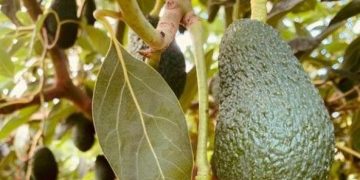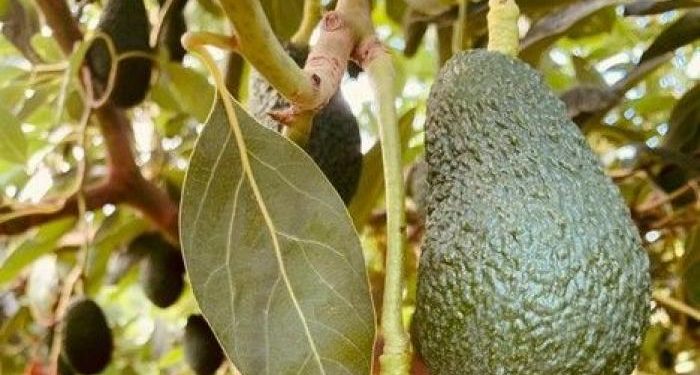In recent years, the province of Cádiz has seen an expansion of avocado production. Hugo Always, of Pérez Zara Agrícola, says that the acreage in Campo de Gibraltar, an area in the extreme south of the province, covers about 2,500 hectares. Previously, mainly citrus was grown there. “This is a privileged area because it gets water from the mountains around Grazalema and Ronda. Rice was even grown here in the past.”
“Pérez Zara Agrícola started growing citrus in 1999. In 2015 we shifted our focus to avocados. We have 115 hectares of our own cultivation and if we add to that the acreage of the growers we work with, we get this year – in which we expect to grow again by 10% – from 220-230 hectares of avocado cultivation.”
This part of the province has, in addition to the advantage of the availability of water – much more than in other parts of Andalusia, where there is scarcity – another strong point for the cultivation of this subtropical fruit: the limestone soil.
“In the avocado sector you often hear that sandy soil offers the best soil for avocado cultivation, but if calcareous soil is properly managed, it means enormous savings in both water and micro and macro nutrients,” emphasizes Hugo. “This type of soil retains water and nutrients much better. Sandy soil is more porous and drains more, requiring more water and fertilizer application.”
“With the right cultivation techniques, a limestone soil is an advantage, although several factors have to be taken into account. One of them is the genetics of the trees. In Spain, clones are usually planted. That gives calibres from 18 to 24. But in Peru and others In cultivation areas that are out of the question, they mainly use trees grown from the pit, which yield larger fruit.
Another factor is the weather. In Andalusia – and Spain, Portugal and Morocco in general – we are in an area with extreme solar radiation and thermal stress in summer. That is why we have recently seen an increase in the use of micro-sprayers above the trees to prevent the fruit from suffering from the heat, because too much heat affects the sizing. The problem is, of course, that we have water scarcity here in the Mediterranean,” says Hugo Always.

“Using micro sprinklers greatly increases water use, when in fact it only regulates the atmospheric temperature and then only while the sprinkler is on. But what really needs to be protected from the stresses of both heat and cold is the root system of the plant. And you can only do that with good technical cultivation management of the soil.”
“On our plots we try to create different layers of soil under the trees. They have to retain the moisture and prevent the soil from being exposed to sun and wind. We ensure that the soil temperature drops and we increase the capacity to fix nitrogen. We prune the trees to encourage lateral growth so that its own shade protects the soil from solar radiation, and finally, we apply nitrogen and amino acids to achieve better leaf development.”about:blank
“All these measures, which are also very low cost, will significantly reduce the water footprint of avocado cultivation. On days when the temperature this summer was around 38-39 degrees and many of our neighbors had their micro sprinklers on, the soil temperature was at our peak. plots between 26-28 degrees,” says Hugo. “On the other hand, that excess water causes fungal problems such as Phytophthora.”

“If we want to sustain the growth of avocado consumption at European level in the future, sustainability will be a crucial issue. Retail will force growers around the Mediterranean to certify their water resources and reduce the water footprint. But quality is also essential.” Hugo emphasizes.

“Pérez Zara Agrícola focuses on sustainable cultivation of avocados of superior quality. Between December and May we harvest on average between 70,000 and 80,000 kilos per week. We always try to bring those avocados to the market as close to us as possible. Export over long distances we avoid keeping our carbon footprint small. At the moment we have the luxury of selling the fruit in markets that demand quality.”
“We have now gone through a decade of the avocado bubble that has left its mark on the quality of the fruit currently in supermarkets. The consumer deserves good avocados, not mediocre fruit at too high a price. And the sector should realize that low-quality fruit drives consumers away, but of course we can’t do without consumers.”
For more information:
Perez Zara Agricola
Ctra. a- 2101 km, 7.9
San Martin del Tesorillo (Cadiz) – Spain
Phone: +34 646 490 027































